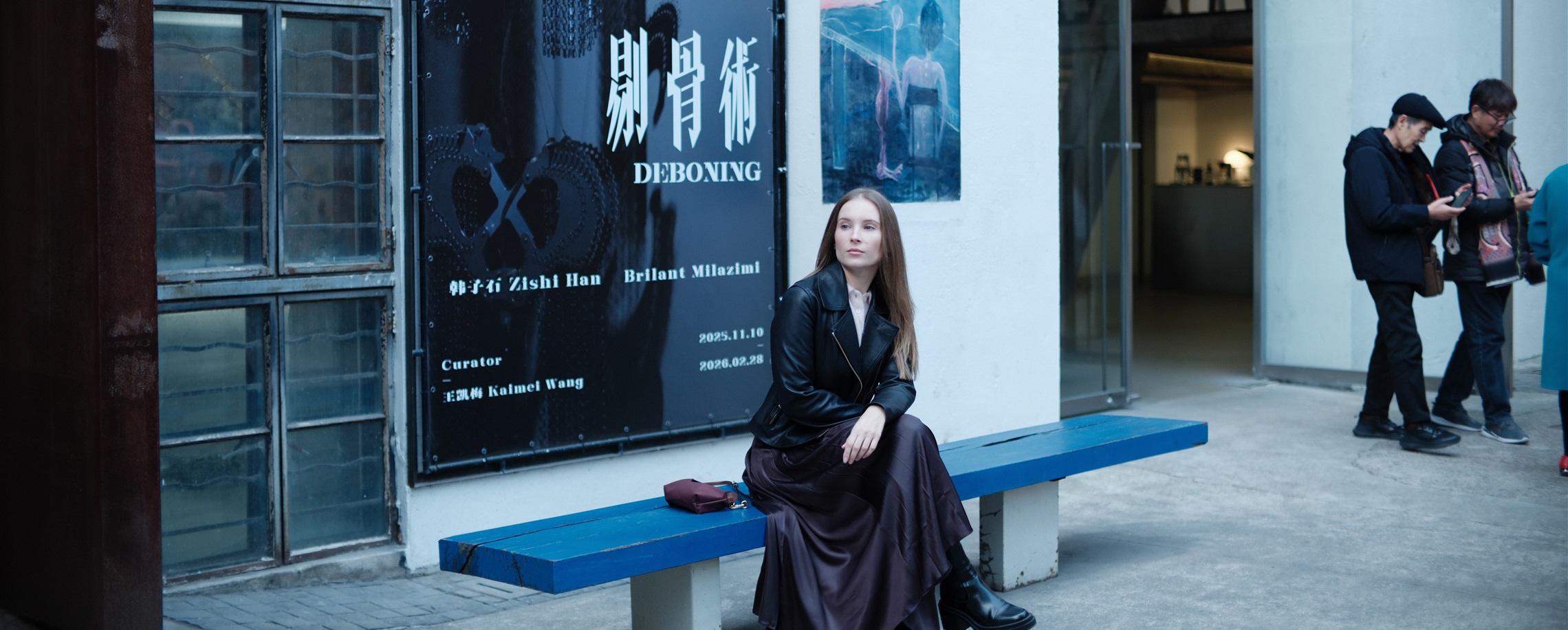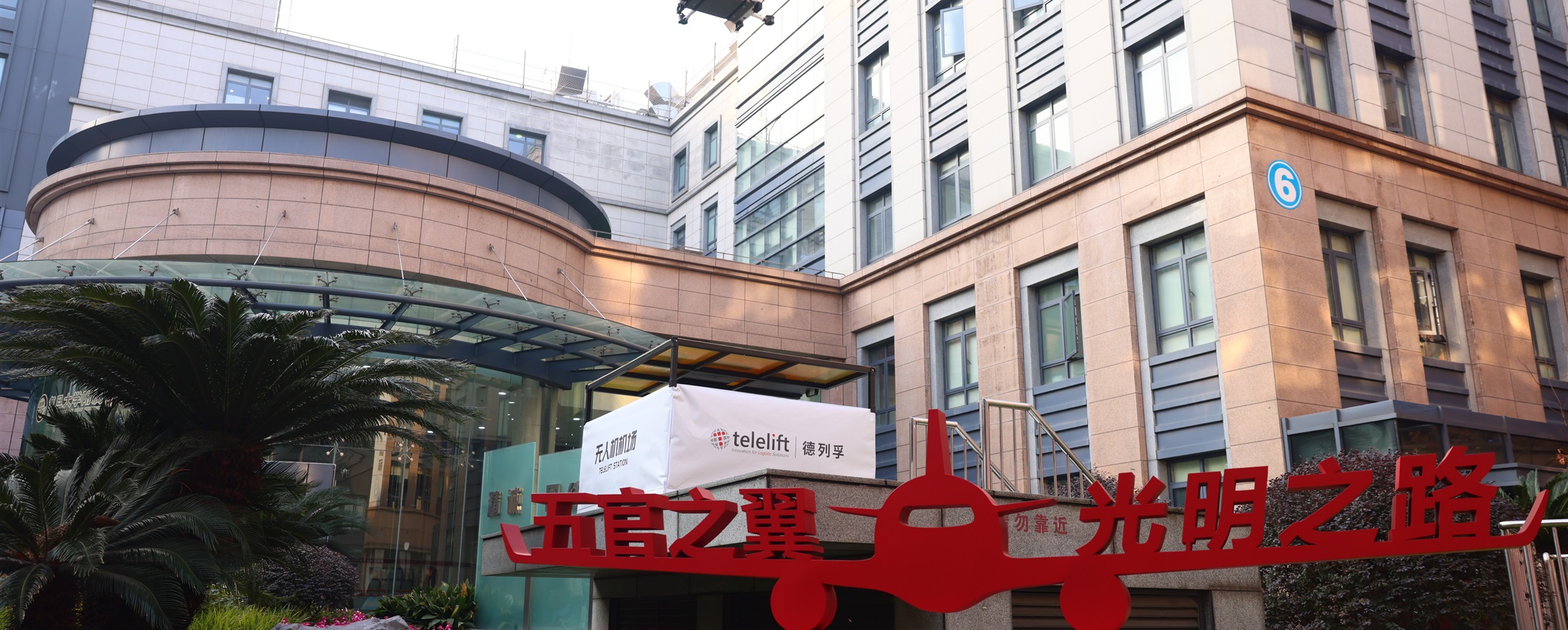A song on the moon brings theater to autistic children
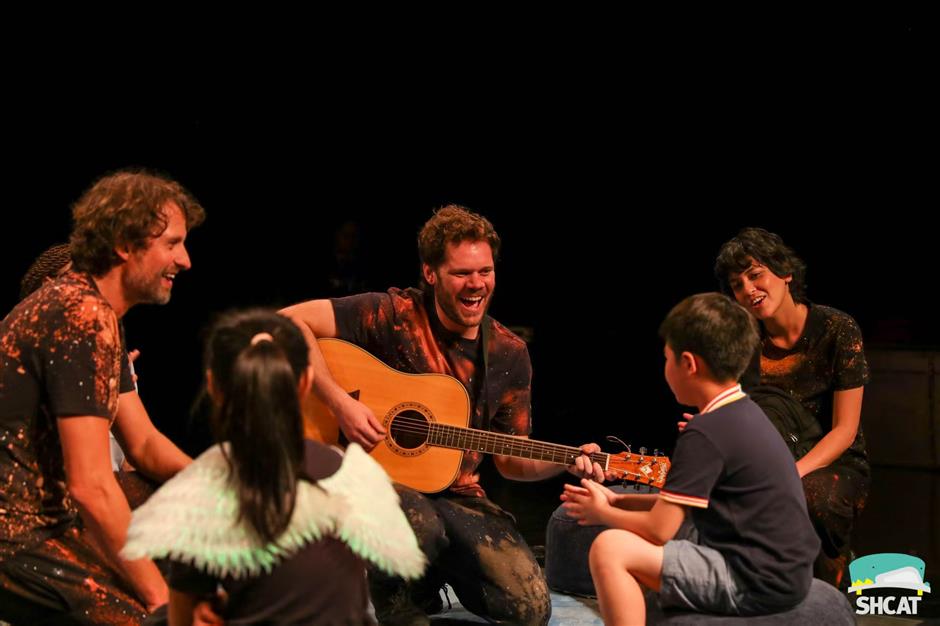
The theater lights dim. Gentle guitar chords and soft voices fill the room. On stage, a girl named Megan drifts to sleep. In her dream, she rockets to the moon, passing comets, shooting stars and glowing creatures.
Six children watch, some sitting beside parents, others closer to the actors. The performers invite them to join – singing, touching props, or simply observing. At first, a boy shouts "no" and refuses to engage. Later, he is on the floor, chasing ping-pong balls, smiling as he scoops them up.
This is "Moon Song," a new immersive theater experience at the Roewe Shanghai Children's Art Theater. Each show hosts just six autistic children, using music, movement and eye contact to reach the audience who often struggle in traditional theaters.
China has an estimated 10 million people living with autism, including about 2 million children. In Shanghai, theaters, museums and community centers are experimenting with inclusive arts, giving families opportunities to step into safe spaces where children can explore, connect and simply be themselves.
During the show, actors repeat lines like, "On the moon, I feel safe now," "I wonder what we will discover," and "On the moon, anything is possible."
The stage glows with warm light as soft music flows through the space. Thunder, footsteps and other sounds echo around the room. Six children "ride" a rocket and land on the moon's surface.
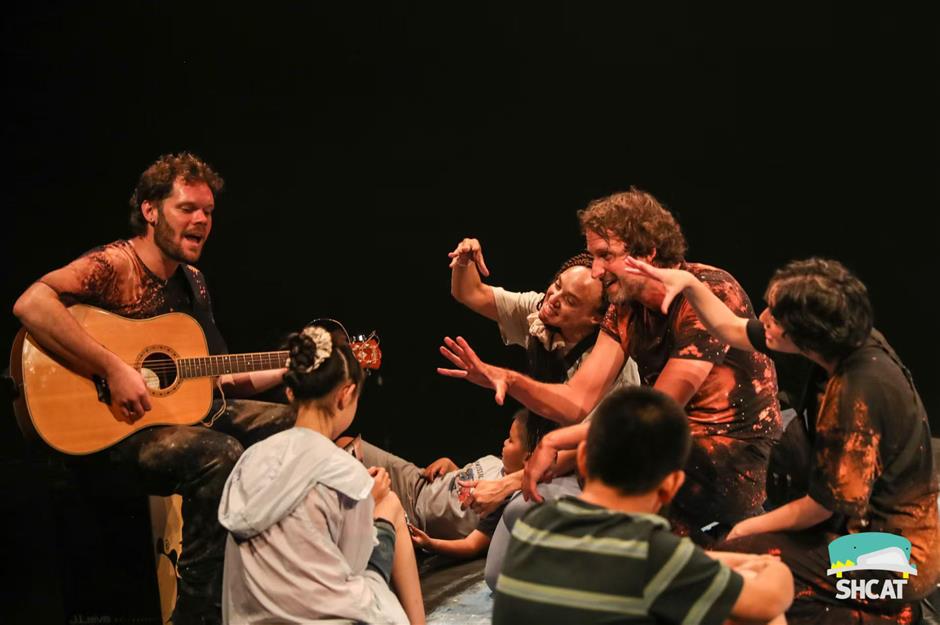
At first, the new world is not calm. One girl jumps among the seats, while another lies still on the stage. A boy remains stiff in his chair, refusing to interact.
An actress lies beside the girl, mirroring her gestures, while an actor approaches the boy, calling his name "Bobo" and gently encouraging him.
Gradually, the actors' voices draw the children in. Small hands reach for props. A few children hum along, swaying to the rhythm. By the end, they are no longer spectators – they are part of the show.
"Moon Song" is part of the "Wish of Starfish," a non-profit program launched in 2017. The theater has staged more than 400 immersive shows for children with autism, intellectual challenges, and cerebral palsy. More than 2,500 families have attended – all for free.
"We want 'Wish of Starfish' to be a bridge," said Xin Yan, executive deputy general manager of the theater. "Through it, more children with special needs can experience inclusive art and find inspiration in the theater."
Each show admits only six children, allowing actors to adapt to every child's needs. Parents often arrive anxious but leave relieved after seeing their children laugh, explore, or simply sit quietly without disruption.
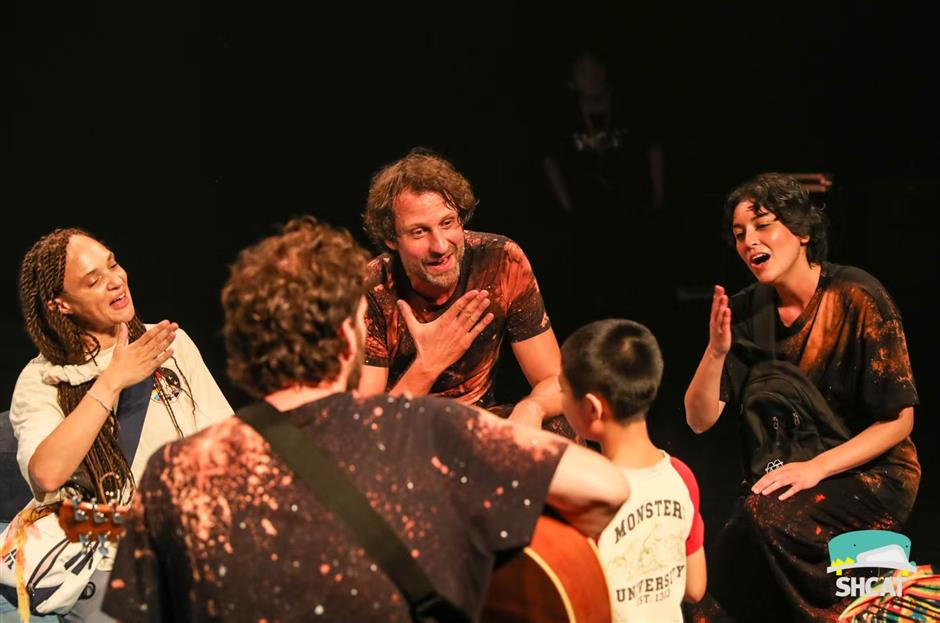
Christopher Davies, artistic director of the United Kingdom's Bamboozle Theatre Company, helped create "Moon Song." His company has collaborated with Shanghai since 2017.
"When you've met one autistic young person, you've met one autistic young person," Davies noted. "Each is different. So we take the show to where the child is. They don't have to come to us. We go to them."
Davies recalled testing ideas in UK special schools, where simple objects like ping-pong balls encouraged participation.
"Even the quiet boy at the back ran forward when the balls appeared," he said.
He praised Shanghai's investment. "Many autistic young people cannot go to normal theaters. Shanghai is leading the way in inclusive theater."
For Chinese actors, these shows have changed their craft. Hu Xiaofei, a stage performer, has worked with the program for eight years while performing in mainstream theaters. Trained directly with the UK team now, he will lead a local cast to continue "Moon Song" in Chinese.
"In a regular play, actors are the focus," Hu said. "Here, the children are part of the performance. We adjust to them. Sometimes that means waiting in silence."
He recalled a boy who never joined but smiled the entire time, his eyes following the action. "That was his way of being in the story – and it was enough."
Hu added that the work has reshaped his understanding of acting. "You learn to give space, to respect silence. It is not about performing for them, but with them."
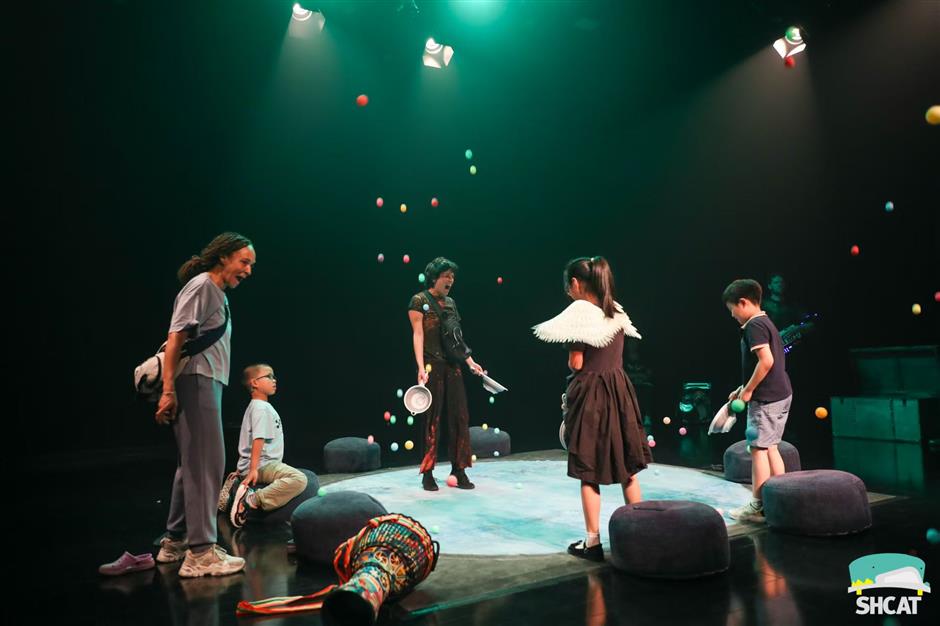
Globally, autism affects at least 78 million people – about 1 in 100 children. Families often face stigma, limited school options, and high therapy costs.
Research shows the arts can help. Theater, music, and painting improve social interaction, emotional regulation, and communication for autistic children, offering a safe, non-verbal way to connect.
One mother remembered her son's first show in 2023. "He has emotional problems in strange places," she said. "He cries, he shouts. I was worried he would disturb others."
After several visits, she saw change. "He watched the actors from start to end, totally focused. That never happens at home. It was my biggest surprise."
For her, the space was a relief. "I used to worry what if he cries, what if people stare. But here, the actors and staff are full of acceptance. There is no judgment. Even without words, he knows they are smiling, touching him gently, giving kindness. That's why he feels safe."
Another mother described her son's first reactions at "Moon Song."
"He is afraid of the dark and tried to run away a few times. But when the music played, he stopped. He loves sound. He doesn't always follow a story, but music and lights make him curious."
"The arts allow emotional development," Davies pointed out. "Experiencing art is valuable in itself, but it also gives parents and teachers new ways to connect with children. Those moments of engagement can shape how young people grow and find their place in the world."
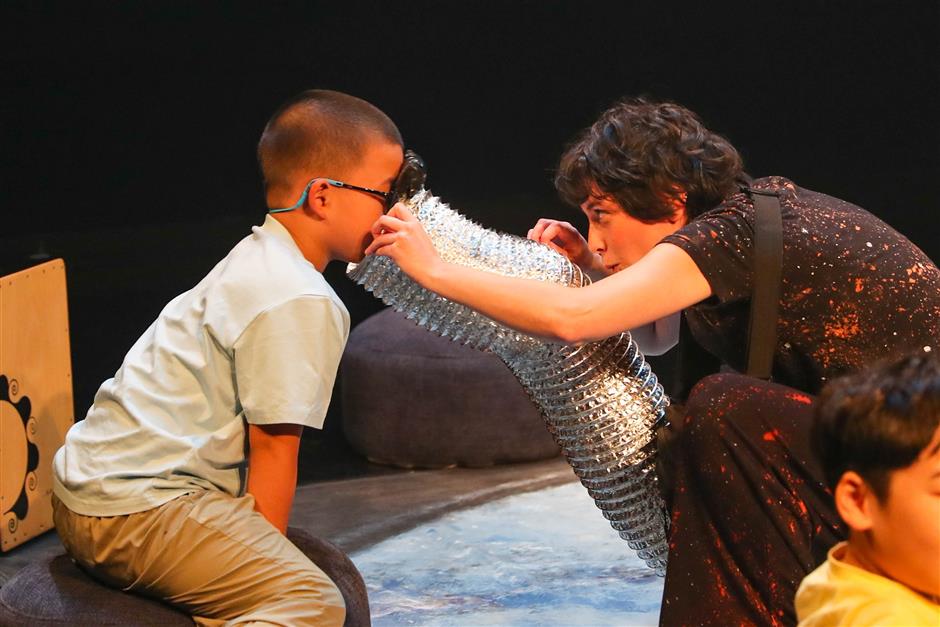
Beyond the theater, Shanghai is expanding inclusive arts initiatives.
In July, 50 families joined a ceramic workshop at Shanghai Haipai Art Museum, creating cups and a mosaic called "In Your World, I Love You." Their works will be displayed and sold for charity.
In Minhang District, autistic youth create paintings and music through the Tongxing Care Center. Some artworks were featured as charity merchandise for a popular TV drama, gaining national visibility.
The Pudong New Area launched an art therapy clinic combining painting, music, and dance with clinical support. In its first year, over 200 children participated, and 80 percent showed improved focus and communication.
The Chinese version of "Moon Song" will premiere this fall at the Shanghai International Children's Theater Festival.
"Wish of Starfish" is also expanding to other cities, including Nanjing and Hangzhou.
Davies hopes the model spreads. "All young people should have access to high-quality arts. For children who often feel anxious in the world, art gives them a safe space to explore, to connect, and to grow."
For the boy who began by shouting "no," that safe space was a moonlit stage. By the end, he was laughing, chasing ping-pong balls, and waving goodbye – finally part of the lunar adventure.
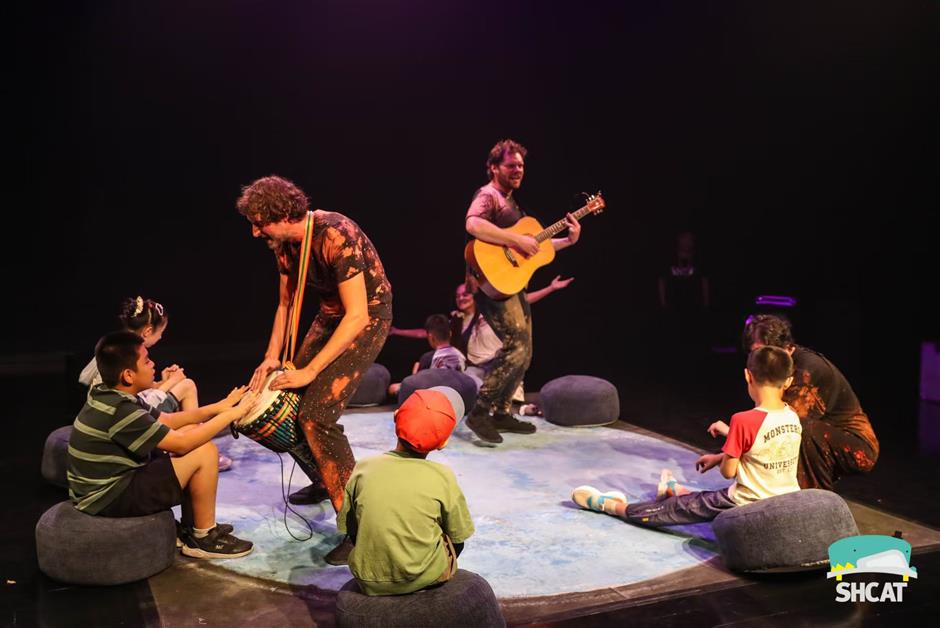
In Case You Missed It...

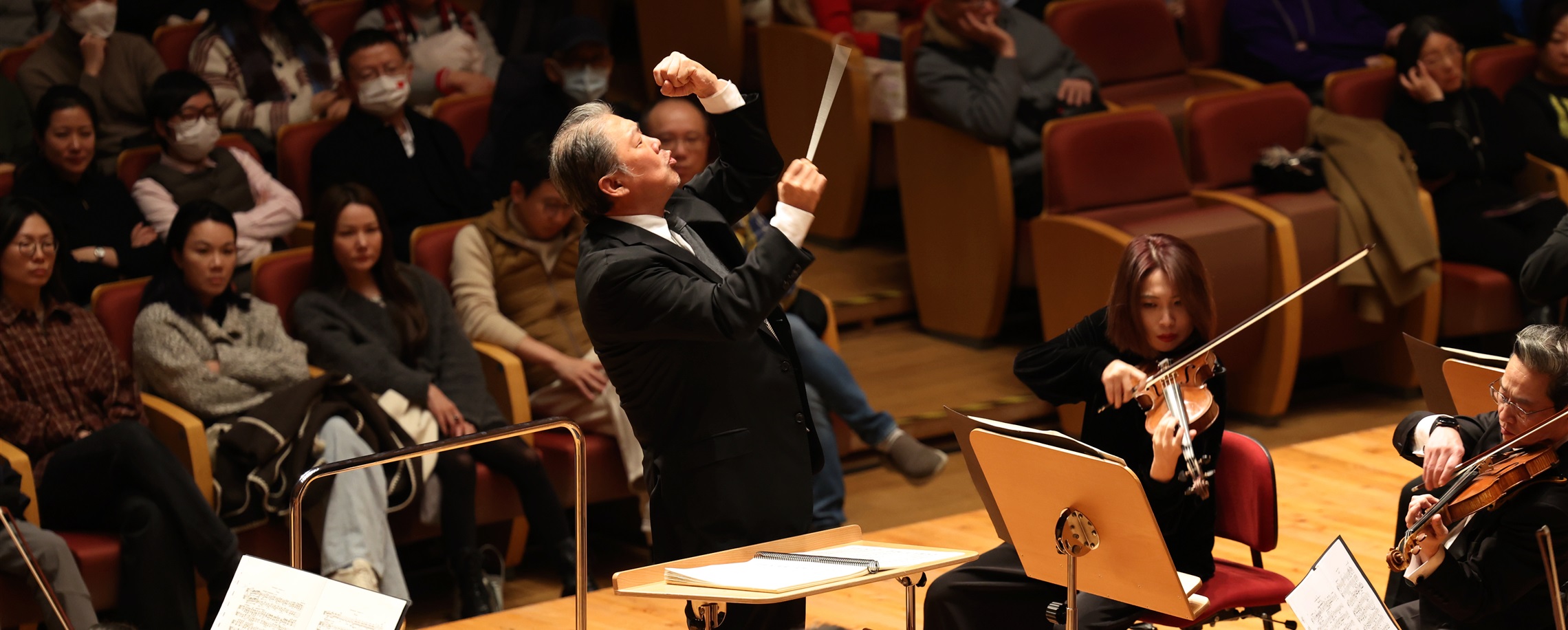
![[China Tech] Local Experts Identify a New Cancer Target](https://obj.shine.cn/files/2026/01/09/f9083ef4-fea8-4a74-8547-5a243e39e8ad_0.jpg)
